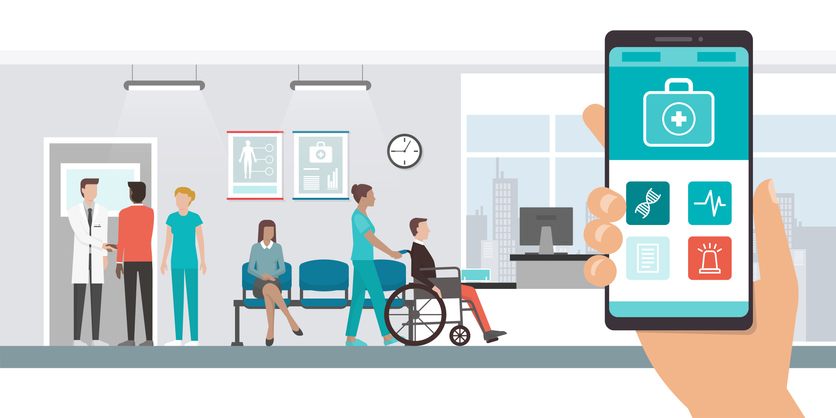Since patient satisfaction survey results in HCAHPS began to impact hospital reimbursement a couple of years ago, healthcare facilities have taken a greater interest in developing ways to improve them. One Wisconsin-based IT business has adapted a sensor initially designed for property managers and hotels to work in hospitals, extended care and nursing home facilities.
In an interview with John Bialk, CEO of QuietyMe, he said noise is a common complaint by patients. It keeps them awake and prevents them from getting a decent sleep, but it can also have unexpected consequences too. Noise undermines patient safety. Fatigued patients tend to be stressed, feel pain more keenly and are less likely to retain critical health information when they’re discharged, which could interfere with their recovery. Those were some of the findings of a report published in 2013 by the U.S. Health and Human Services Agency for Healthcare Research and Quality at the American Hospital Association.
He also points out that the company is trying to solve a very old problem. “Unnecessary noise is the most cruel abuse of care which can be inflicted on either the sick or the well.” That didn’t come from a 21st century consultant’s book. It comes from a book by Florence Nightingale penned in 1859 — Notes on Nursing.

With the Rise of AI, What IP Disputes in Healthcare Are Likely to Emerge?
Munck Wilson Mandala Partner Greg Howison shared his perspective on some of the legal ramifications around AI, IP, connected devices and the data they generate, in response to emailed questions.
The sensors are placed in patient rooms and a dashboard component helps alert nursing stations to areas where noise levels are greatest so they can take a closer look at what’s causing them and develop a solution. The company creates a score for each shift by looking at noise levels for each room and comparing them from one day to the next. It equips hospitals with the ability to change the conversation from placing blame to solving problems.
Bialk said talking is the biggest source of patient noise complaints. But this tends to be discovered months after patients fill out these surveys when any response seems passive aggressive at best. Nurses tend to get the rap, but as Bialk points out the blame could rest with doctors, medical staff taking blood from neighboring patients.
The current remedy for noise in hospitals tends to be soundproofing tiles that muffle sound. But the nice thing about QuietyMe is that it provides data that can trigger conversations on how to improve how healthcare workers can respect patients’ sleep needs and still get their work done.
“We are taking a lean startup approach to the problem. We’re looking at this issue from the patient’s perspective, ” he said. “A lot of consultants come in and try to tell healthcare staff how to do their job. We are very mindful of that. We are offering a measurement tool for them. All the effort is on their part. The nurses solve this problem.”
Bialk said it has made 20 deployments of the sensor platform across healthcare facilities and is aiming for 50-100 this year. It’s in the process of raising additional capital to automate some of the services it provides and support the expansion. In the past year it has increased staff numbers from four to 24. So far, it has done a couple of financing rounds that have included backers like American Family Ventures, Angels on the Water — an angel group in Oshkosh, Wisconsin — and Healthbox, a healthcare startup accelerator in Chicago where the company graduated from last year.














